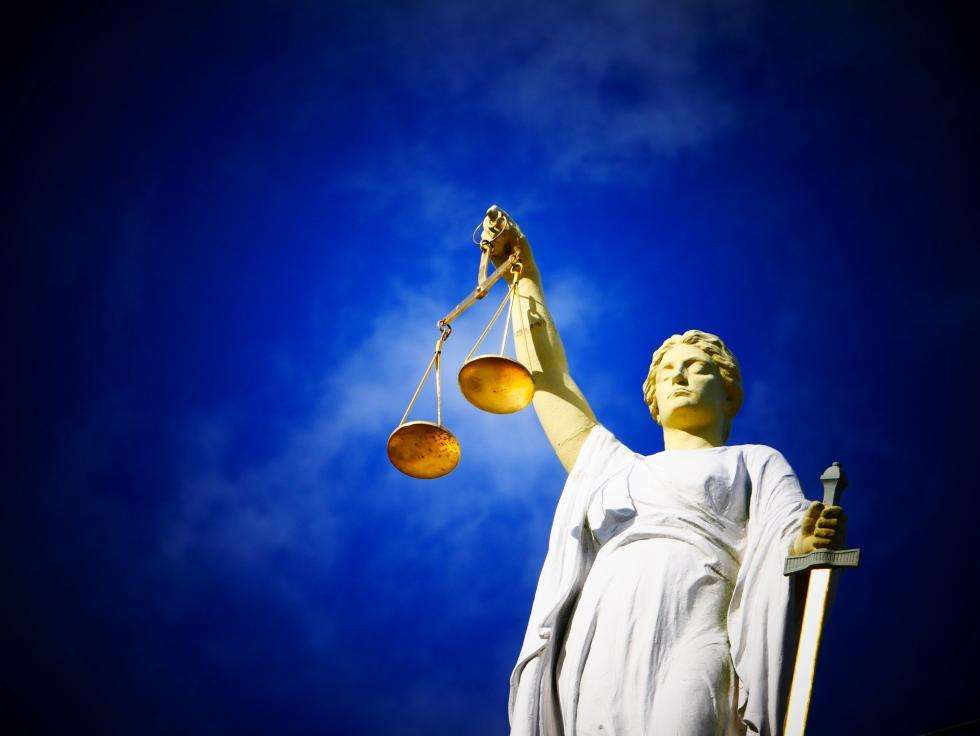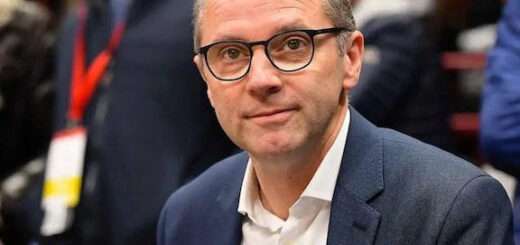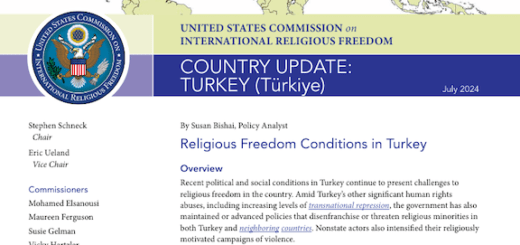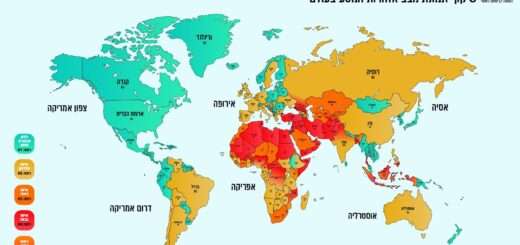Gassia Apkarian: When Yerevan Fails, Armenians Seek Justice in Latin America

Diplomacy stands in the way of Armenian plaintiffs seeking war crime prosecutions. Yerevan cannot garner the necessary support for an international tribunal. Meanwhile, as Armenia negotiates a peace agreement with Azerbaijan, the country avoids being perceived as an aggressor by initiating the prosecution of Azerbaijani officials. Faced with this accountability void, survivors of the 2020 conflict are invoking the principle of “universal jurisdiction”. The principle of universal jurisdiction allows states to prosecute serious crimes committed outside their territory, by non-nationals, and against non-nationals. This is meant to combat impunity, particularly for war crimes, when the country where the crimes occurred is unable or unwilling to prosecute. The list of countries that would take on such cases on behalf of Armenian plaintiffs is finite: Germany, France, Belgium, Spain, Sweden, and the Netherlands in Europe, and Uruguay, Argentina, and Chile in Latin America. This interview explores this legal strategy that may be increasingly relevant as multilateral governance is in crisis.
Caucasus Watch spoke to Judge Gassia Apkarian, a founding member of the Centre for Truth and Justice (CFTJ), a non-profit organization based in Yerevan and founded in the aftermath of the 2020 war in Nagorno-Karabakh. The organization’s primary objective is to preserve eyewitness testimonies of war crimes for legal, educational, and historical purposes. The center trains law students and young lawyers in Armenia in evidence-based interview techniques that meet international legal standards. The objective is to make first-hand witness accounts admissible in courts of law worldwide. Judge Gassia Apkarian currently serves as a Superior Court judge in Orange County, California. She has long experience in litigation, having served as a Public Defender. She was raised in the Armenian Levantine Diaspora, in Lebanon, Syria, and the U.S. Having noted the tension between justice and diplomacy, she has been looking to mobilize the power of domestic law in Latin America.
I understand your organization is seeking to prosecute war crimes in a national court far away from the Caucasus?
The campaign is founded on the principle of universal jurisdiction, which is particularly useful for small countries. Countries like the United States, which is not a member of the International Criminal Court, don’t need universal jurisdiction. They have the power and the systems in place to prosecute war criminals or ensure that the UN establishes a war tribunal. Universal jurisdiction is about giving access to justice to victims of war crimes from smaller countries that don’t have the political ability to pursue justice at home. Generally speaking, victims of war crimes have very little access to justice. Universal jurisdiction creates an opportunity, which says it doesn’t matter where the war crime happened or what country the victim is a citizen of. There’s a recognition that these crimes need to be tried to reduce impunity, if that’s even a concept anymore.
Armenia is a prime candidate for universal jurisdiction because there are two groups of victims: first, the Armenian population living in the Republic of Armenia; second, the 120,000 Armenians who lived in Nagorno-Karabakh, which is territorially recognized as a part of Azerbaijan. These Armenians were forcibly displaced from their land and found refuge in Armenia. In either case, the alleged perpetrator is Azerbaijan—members of the military or the government, given that this state is a dictatorial hierarchy. So, if you are an Armenian, where do you go to prosecute war crimes committed against you by the Azerbaijani Government?.
Armenia would be the natural location, but there are a multitude of problems with that. Armenia lacks the political strength to prosecute Azerbaijanis. First of all, they would have to do it in absentia because it lacks the power to issue subpoenas or arrest warrants. Extradition is an impossibility as well because it would require Azerbaijan to arrest its own and transfer them to Armenia. Second, and most importantly, Armenia is actively negotiating a peace agreement with Azerbaijan and feels that it must avoid being perceived as taking a step that might be regarded as aggressive.
Therefore, these cases will be brought forward by Armenians rather than Armenia. Which Armenians? Who are the people in question?
There are two groups. There are Armenians inside Armenia. In 2022, Azerbaijan militarily attacked Armenia from three fronts and currently occupies land inside Armenia. In their effort to do this, they bombed and attacked the civilian population, their homes, infrastructure, and businesses, including manufacturing companies. One of the worst cases involved five women who were wearing fatigues and assisting personnel. They primarily took food back and forth or helped with communications. They were captured. Forensic evidence suggests they were shot, but not fatally. While alive, they were tortured and their bodies were marked with the name of the Brigade, Yashma. Video evidence of all this was circulated on Telegram, which is how one sister, one daughter, and other family members discovered what had happened.
Bad things happen in wars, but to dehumanize women and hold on to their bodies as trophies is quite different. Only one family out of these five women is willing to come forward and testify. They fought to get the body back from Azerbaijan and to get forensic evidence. Initially, they went to the ICC and then to Washington. There is a sister now raising the two sons of her sibling. She finds strength in doing this. That’s how she deals with what happened to her sister, who had four kids: two adult girls and two minor boys. The youngest one was nine at the time, the older seventeen. She, of course, tried to save the children from seeing that video on Telegram. All the children face various challenges now, and it isn’t easy to provide them with a normal life. The other families are too traumatized and refuse to be interviewed or even receive a phone call. Then there are Armenians who were brutally executed or slaughtered, caught on video, during the 2020 war in Nagorno-Karabakh.
It’s important to point out that the Center does not represent plaintiffs or victims. It is the conduit that records, preserves, and provides objectively collected evidence of war crimes to the prosecutor’s office to pursue justice.
So, are we speaking of specific soldiers, specific officers, or the state?
It’s very difficult to track down the exact soldiers or suspected actors. At best, from video footage or satellite images, the name of the brigade can be identified. But once a case is opened by the prosecutor’s office under universal jurisdiction, the investigation begins. The evidence that the Center for Truth and Justice has established is a sufficient basis for universal jurisdiction to be opened. After that, discovery ensues because the prosecutor’s office will inform those who are being accused and the government.
When you’re dealing with war crimes, you’re trying to prosecute a government you can’t access. Most evidence is what we call ‘circumstantial.’ It’s not direct evidence. Circumstantial evidence is just as good as direct evidence if you connect the dots. Armenians in Nagorno-Karabakh constitute a distinct category altogether, which is the forcible deportation of 120,000 Armenians. That’s something that needs to be done at the ICC level. However, specific crimes have been committed. One of them has been filmed. You can see two men, wrapped in the Armenian flag, set in the central square of the town, and shot.
Is this an action involving many plaintiffs?
The way lawyers and law groups approach similar cases is that if you have evidence of war crimes, and the evidence is obviously from the victim, then you have to refer the case. Whether you can pinpoint the culprit becomes a secondary question. Let’s say there are 22 alleged crimes; once universal jurisdiction opens, the prosecutor will decide which allegations to proceed on once the investigation is pursued. The opening of universal jurisdiction ultimately lies with the prosecutor’s office and the judge before whom they will present the preliminary case.
Focusing on the trial, how do you ensure that there is a chain of custody, a sense of symmetry between the defense and the plaintiff?
The primary purpose of the Centre for Truth and Justice has been the collection of admissible evidence, not just any evidence. That means chain of custody and authentication. It cannot be hearsay; it has to be first-hand. There is precedent. We developed an extensive protocol and trained young lawyers and law students on the exact procedures required for this work, including the Rules of Evidence applied by federal courts and investigators in the United States. I mean, it’s very standard, but Armenia doesn’t have that tradition, so we had to create it ourselves, teach, and train. The training was conducted by American lawyers, in large numbers, on a daily and weekly basis via Zoom. All the work that was being collected was reviewed to ensure that the Rules of Evidence were being followed accurately, regardless of any testimony or forensic evidence that we had. We have established the entire chain of custody, including who said it, who collected it, when it was collected, and who is responsible. Therefore, in case the court needs to establish the chain of custody, we don’t rely on rumor.
The only testimonial evidence we collect is from the first-hand victims themselves. If the person is dead, obviously, it’s the person who was either with them or their next of kin. We have a lot of testimonial evidence from returning POWs who were tortured. So that’s first-hand. However, we also corroborate our findings with others who witnessed the event. So, we don’t just rely on first-hand accounts; we also conduct corroboration.
For tactical reasons, I understand that you don’t want to share the location of where this trial will take place.
When universal jurisdiction opens, it will become public information. There’s a list of countries in Europe and Latin America where this would be contextually more plausible.
What are the diplomatic or legal barriers you have to go through to bring this case into a court of a third state?
The legal barriers stem from two countries: the country where these citizens are nationals, which is Armenia, and obviously, I don’t think that’s a legal barrier. The second is Azerbaijan, which will do everything it can to try to get the case dismissed. That’s not a legal barrier. That’s called ‘litigation,’ and it’s expected. Under universal jurisdiction, it is understood that the primary location of jurisdiction is the country of origin of the victim. We need to establish that Armenia is not opening cases, or cannot or will not. That becomes a political issue. Armenia has to assert that the country will not or cannot open a case. So, if they cannot or will not, another state can. What is needed from Armenia is to acknowledge that these cases are not being pursued at this time.
So, assuming this case reaches a national Court, will the victims need to relocate to that jurisdiction for several months?
Not necessarily. It depends on the judge and the jurisdiction. Remote testimonies may also be acceptable. Victims of war crimes are probably one of the most hopeless victim groups in the world. They have zero expectations of justice or fairness: just the sheer idea that perhaps they might be heard is in itself hopeful. Those who come forward and give us their testimonies are satisfied with the idea that someone is trying. If jurisdiction is established, I have very little doubt that these individuals will appear in Court.
If you look at your TV screen and the victims in Ukraine, Russia, Gaza, Israel, Iran, Sudan… How many of those victims think that there will ever be a day when a Court will hear their plight?. None of them has that expectation. We’ve done this work with other countries and other victim groups. We’ve trained other lawyers in different countries. All these people need to be heard. They need to have their day in court regardless of the outcome.
What kind of outcome are you seeking? Sanctions? Convictions? Truth-telling?
A criminal conviction is the appropriate outcome where war crimes have been committed. Most people know that the word ‘genocide’ was coined after the Armenian Genocide in 1915. Since 1915, before and after, there has not been a single court case of prosecution regarding the crimes committed. There are 11 million Armenians, of whom 8 million live outside Armenia. As a nation, we don’t believe in justice because we’ve never had a day of justice. So, it’s not about convicting this or that individual. It’s about empowering a nation to believe that you can have agency and stand up for your rights.
Would you rather do this in Europe or Latin America?
To me, it doesn’t matter: whoever will provide jurisdiction and venue. However, I think Latin America is slightly more removed from the political sphere of influence of Eurasia. The further we move away from the region, the safer we are to keep these cases intact in the legal system and not let money and politics influence them. That’s a tall order.
In Latin America, several countries have a relatively substantial Armenian community. That is important because the Centre for Truth and Justice is not the group that will bring the case, as that would create a conflict of interest for us. We collect and provide evidence to whoever is bringing the case.
This limits the scope to Argentina, Uruguay, and Chile. Is this water under the bridge, or are you still exploring options?
There are a couple of plaintiff groups that are focused on specific countries. We support them by providing them with the evidence so they can be successful in opening jurisdiction. This could take years. It’s slow. It’s detailed. And it requires staying with it and not losing hope. The goal is justice through universal jurisdiction. We will see where it ends up.






This article and the entire interview are highly suspicious and should be subject to intense scrutiny by all concerned Armenians.
I work in Washington, D.C. I was first alerted to this article and to The Center for Truth and Justice and its founder Gassia Apkarian about 2 years ago by some close Armenian colleagues and associates here in Reston and Arlington, as well as some colleagues internationally.
For starters, the first paragraph is so poorly organized and written and full of non sequitur. It reads suspiciously like an attempt to introduce the interview through a heterogeneous collection of disingenuous machinations. It reads like a shameless, amateurish, transparent attempt to collude with Ms. Apkarian to promote her organization.
The prospect of that is very disturbing to many of us. I was shocked to learn from my Armenian colleagues that they have been observing her for a long time.
In the past 2 years, several Armenians here in Arlingon and Crystal City have become privy to a lot of rumors about questionable behavior, including but not limited to, misappropriation of funds donated to The Center for Truth and Justice. Also, there have been rumors that there have been instances of illegal misappropration of funds between The Center for Truth and Justice and another organization, “Global Arm,” which is another lobby group here in Washington, D.C. run by Ms. Apkarian’s husband, Timothy Jemal.
While my colleagues and I, both locally and internationally, cannot validate or verify the veracity of such rumors, their persistence over a few years is quite concerning, especially given Ms. Apkarian’s position as a judge (in Orange County, California).
La’toya Rice
Arlington, VA
Rumors mean nothing. Where is the evidence?